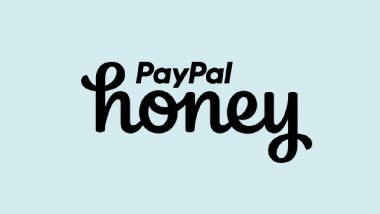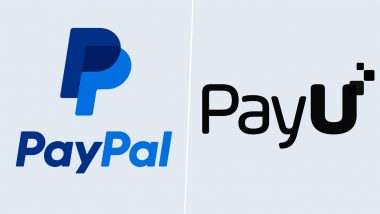New York, January 6: Honey, a browser extension by PayPal that helped YouTubers re-attribute sales made via affiliate marketing programs, was alleged to be a scam. In December 2024, YouTuber MegaLag accused the Honey browser extension of manipulating affiliate links and withholding better discount codes in favor of partnered vendors. Recently, another YouTuber, LegalEagle, sued PayPal for cheating the creators out of money.
According to a report by TechCrunch, a global fintech giant acquired Honey for USD 4 billion in 2019, which automatically applied the online coupons on e-commerce websites, allowing users to buy products at lower prices. However, PayPal Honey is accused of being a scam by MegaLag, who said that the browser extension stole money from the influencers. Infosys Salary Hike Deferred: Report Says IT Firm Postpones Annual Raise to Fourth Quarter for Current Financial Year, Here's What It Means for Employees.
MegaLag explained that the PayPal Honey browser extension would "surreptitiously" substitute its own link when the viewer makes a purchase. Honey did this without providing any discounts. YouTuber MegLag said that by doing so, PayPal Honey, not being the creator, could earn the affiliate revenue for doing the transaction.
Following this, a DC-based lawyer who posted videos on LegalEagle's YouTube channel filed a lawsuit against fintech giant PayPal, accusing the company of diverting commissions from its rightful earners. He also claimed that the Honey browser extension undermined the affiliate marketing system. In his lawsuit, he further explained that, ironically, PayPal enlisted content creators and influencers to promote the Honey browser extension, which took away the income and benefits on which they depended. Reliance Jio IPO Coming? Mukesh Ambani-Led Telecom Firm Targets ‘India’s Biggest IPO’ With Record-Breaking USD 120 Billion Valuation, Say Reports; Details.
Upon reaching out amid these allegations, PayPal said it would defend its position as it followed industry rules and practices for using the extension. The report mentioned that PayPal disputed the claims and said it would defend itself "vigorously." The company said that the PayPal Honey browser extension followed the rules and included a last-click contribution, referring to the ad attribution system in which the final touchpoint got all the purchase credit.
(The above story first appeared on LatestLY on Jan 06, 2025 12:50 PM IST. For more news and updates on politics, world, sports, entertainment and lifestyle, log on to our website latestly.com).













 Quickly
Quickly





















